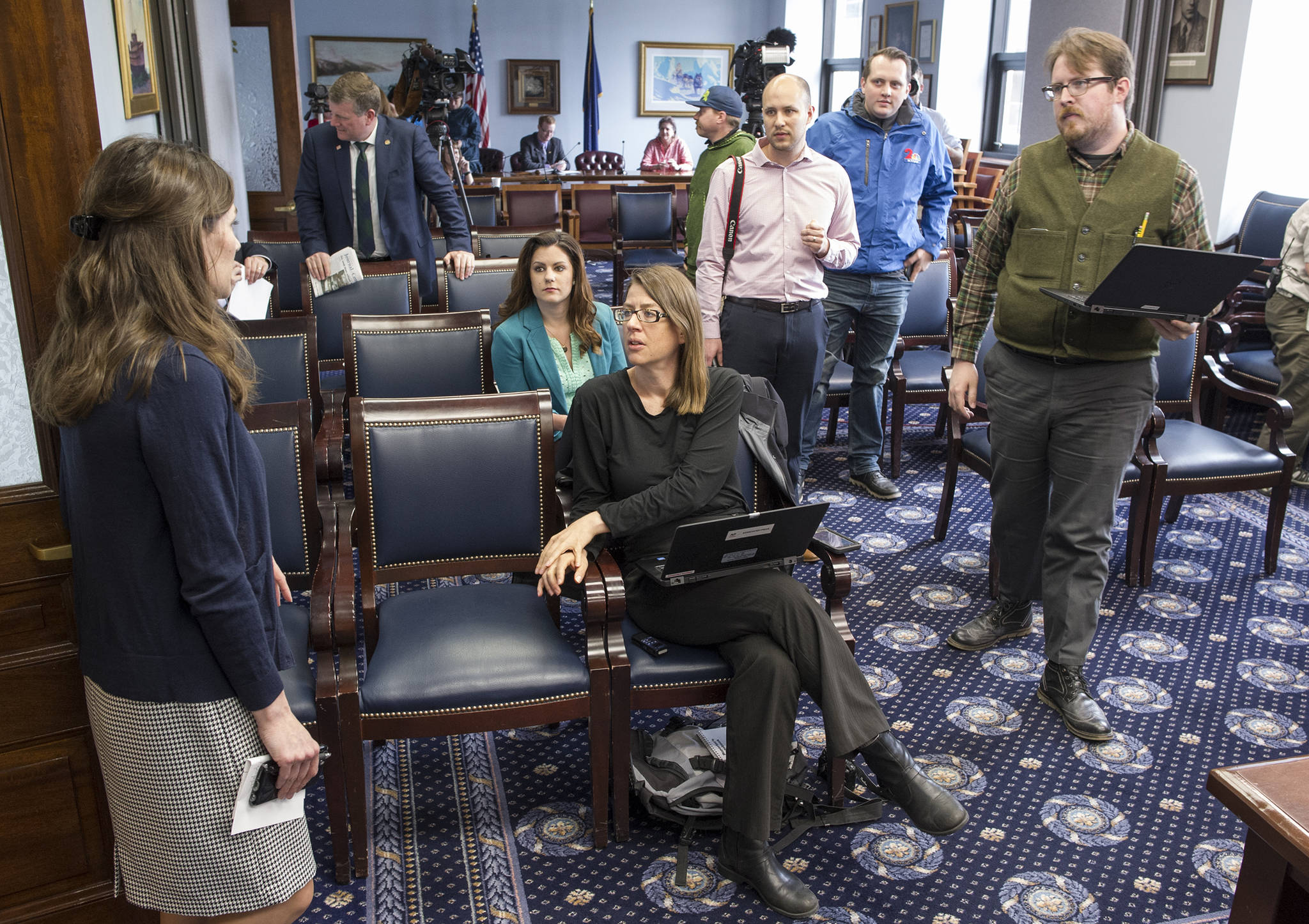Calling the Alaska Legislature’s current situation a “stalemate,” Gov. Bill Walker has announced that he will make a bid to avert a pending shutdown of the Alaska government.
“A government shutdown is unacceptable, and compromise is essential. So my team and I have begun work on a compromise package from concepts currently on the table, and intend to present the compromise to all four caucuses next week,” Walker said in a statement Friday morning. “There is no reason lawmakers cannot complete their work within the current special session.”
Walker called the Alaska Legislature into special session after it failed to pass a budget or close the state’s $2.7 billion deficit in a 121-day regular session.
Now, only two weeks remain in that 30-day special session, and the state will shut down on Monday, July 3 if no agreement is reached. Even before July 3, the state will begin shutting down remote fishing management operations, endangering Alaska’s multibillion-dollar salmon fishery.
It is unclear what compromise Walker will suggest, but deputy press secretary Jonathon Taylor said by email that “it will include legislation that is already on the table and is actionable under the Special Session call.”
When Walker called lawmakers into special session on May 18, he included an eighth item on the agenda he set: “An act or acts to increase an existing tax or to establish a new broad-based tax for the purpose of generating new revenues for the state.”
Walker could use that loosely defined language to propose a sales tax, income tax, schools tax, or any of a number of options proposed by lawmakers during the regular session.
Even without the governor’s action, lawmakers said Friday that they were looking forward to making progress next week.
The state’s budget dilemma is twofold: It must complete a budget, then figure out how to pay for it. Alaska has enough remaining savings to pay for expenses one more year, but 2018 is an election year, and there is a widespread belief in the Legislature that fixing the deficit becomes much more difficult under the pressure of an impending election.
The House and Senate both agree that spending from the Alaska Permanent Fund is necessary, and each have approved slightly different versions of Senate Bill 26, a measure that would cut the Permanent Fund Dividend and divert money to state services. The exact amount differs between the proposals.
The leadership of the coalition House majority, meeting with reporters Friday morning, said it continues to believe that the Legislature must approve another budget-balancing bill as a precondition to considering Senate Bill 26.
The most likely additional measure remains House Bill 111, which cuts the state’s subsidy for oil and gas drilling. The House and Senate have passed different versions of that bill, and a committee is scheduled to meet Tuesday to discuss the differences between those versions.
Senate President Pete Kelly, R-Fairbanks, told the Empire on Friday that he doesn’t think the Legislature is quite stalemated yet.
“I don’t know about stalemate,” he said. “I think that’s a word that’s easy to throw around.”
He did say that time is running out for the Legislature to finish work on the budget before the end of the special session.
“It takes usually about three weeks of work. You can do it in two,” he said of vetting and checking the final document.
If lawmakers can’t agree on how to pay for the budget, they might at least agree on what’s in the budget, he suggested.
“Right now, we’ve got to make sure the budget’s taken care of,” Kelly said.
Meetings next week will begin looking at different departments where the House and Senate are closer together. Rep. Neal Foster, D-Nome and co-chairman of the House Finance Committee, said meetings are planned on the budgets for the Department of Administration and the Department of Commerce, Community and Economic Development.
Contact reporter James Brooks at james.k.brooks@juneauempire.com or call 419-7732.

